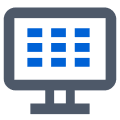sandalwood
Abstract: In 2024, the AI laptop penetration rate in China's e-commerce market reached 18%, with sales of 2.89 million units. The penetration rate further increased to 25% in Q4. AI laptops are gaining traction not only in the high-end market but also in the mid-price range of 5000-8000 RMB, where penetration has accelerated, reaching 40% in the 5000-6000 RMB segment. The release of Manus has opened up the potential for "AI Agent + AI PC." AI PCs are evolving from mere computing platforms to intelligent "productivity hubs," with significant potential to reshape the landscape of terminal manufacturers.
(Note: AI PCs refer to computers equipped with NPUs.)
AI Laptop Penetration Rate Rises to 25%, AI Agent to Accelerate AI PC Growth
With the continuous evolution of large model technology, AI has made breakthrough progress in fields such as natural language processing, image recognition, and multimodal generation. Recently launched Manus, the world's first truly universal AI Agent, is capable of autonomously completing tasks from planning to execution. This indicates that the combination of "AI Agent + AI PC" is poised to become a key form of next-generation human-machine collaboration.
According to Sandalwood's China e-commerce data, the total e-commerce sales of laptops in 2024 reached approximately 16.54 million units, with AI laptops accounting for 2.89 million units, or 18%. While the overall market size has seen a slight year-on-year decline of 3%, AI laptops have shown strong growth, particularly in the fourth quarter of 2024, where the sales penetration rate of AI laptops further increased to 25%.

Over 50% Market Share in the 5000-8000 RMB Price Range:
Analysis of AI Laptop Sales Structure
In terms of price segment distribution, AI laptops show the most significant growth in the mid-to-high-end price range of 5000-8000 RMB, which accounts for over half of the total AI laptop sales. Specifically, the 5000-6000 RMB and 6000-8000 RMB segments each reached a 26% and 32% market share in Q4 of 2024, with market share expanding from the mid-range to both ends of the price spectrum. The 4000-5000 RMB, 8000-10000 RMB, and 10000-15000 RMB price ranges each maintained a share of 10%-15%.

Penetration Rate of 5000-6000 RMB Surges to 40%+, Accelerating Penetration Across Multiple Price Segments
In terms of penetration, by Q4 2024, the ultra-high-end market for AI laptops priced above 15000 RMB reached a penetration rate of 60%, while the 10000-15000 RMB range saw a rate of approximately 40%. The penetration rate for AI laptops in the 5000-6000 RMB range rapidly grew to over 40%, with the 6000-8000 RMB segment also reaching 30%. The 4000-5000 RMB and 8000-10000 RMB segments had penetration rates of around 20%. Overall, AI laptops are accelerating their penetration across various price segments, showing a deep layout trend in multiple price ranges and application scenarios.

CPU, GPU, and NPU Evolving Simultaneously:
Intel and AMD Each Hold 40% of the Market
With the continuous evolution of heterogeneous computing architecture, the PC industry is undergoing a new round of upgrades in CPU, GPU, and NPU. According to Sandalwood's China e-commerce data, in 2024, Intel held around 40% of the AI laptop market with its ULTRA series processors, with the ULTRA5-125H leading single models at a 22.1% market share. AMD also captured nearly 40% of the AI laptop market, with the R7-8845H and R7-8845HS mobile processors combined holding a 33% share. Meanwhile, Apple gained approximately 16% of the market share through its M3 and M2 series chips.
As we enter 2025, both Intel and AMD have launched their latest AI-accelerated PC mobile processors:
Intel's Core Ultra 200 series (especially the Lunar Lake model) delivers a total AI performance of approximately 120 TOPS, with the NPU contributing 48 TOPS of that.
AMD's Ryzen AI Max series boasts about 50 TOPS of NPU performance, specifically designed for high-performance thin laptops, with plans for a launch in Q1 2025.
On Apple's side, the M4 series chips come with a neural engine capable of performing up to 38 trillion operations per second, supporting Apple Intelligence functions like real-time translation and image recognition, while protecting user privacy with hardware-level security. The M4 Pro and M4 Max versions feature larger memory capacities, enabling efficient operation of complex AI models and providing powerful computational support for professional users.

From Computing Platform to Productivity Hub,
New Opportunities in the PC Terminal Market
As AI Agents transition from passive response to active interaction, combined with their deep support for complex tasks and ecosystem integration, the boundaries of human-machine collaboration are constantly expanding. PCs, through continued investment in heterogeneous computing power (such as CPU, GPU, NPU), thermal optimization, and modular design, provide a more stable computational environment for AI Agents and the ability to operate 24/7. At the same time, the vertical integration of technology ecosystems and the multi-scenario needs of users are driving AI PCs to evolve from mere computing platforms to intelligent "productivity hubs," raising higher demands for terminal manufacturers.
According to Sandalwood's China e-commerce data, in the AI laptop sector, Lenovo remains the leader with over 30% of the market share, followed closely by Apple with more than 20%. ASUS and Mechanical Revolution are also at the forefront, each holding about 10% of the market share. Huawei and Honor's performance continues to improve, with their combined share approaching 10%. Overall, market competition is becoming more diversified, prompting manufacturers to continually invest in collaborative innovation between hardware and software.
How U.S.-China Tariffs Are Reshaping Cross-Border E-Commerce: A Data-Driven Look at Temu, TikTok Shop, and Amazon
TWS Earbuds Attachment Rate for Smartphone Manufacturers Reaches 21%, Accelerating the Construction of the AI Terminal Ecosystem.






















